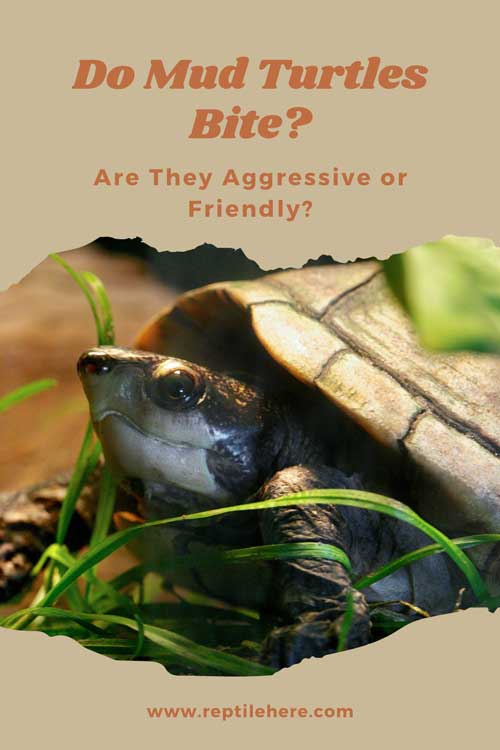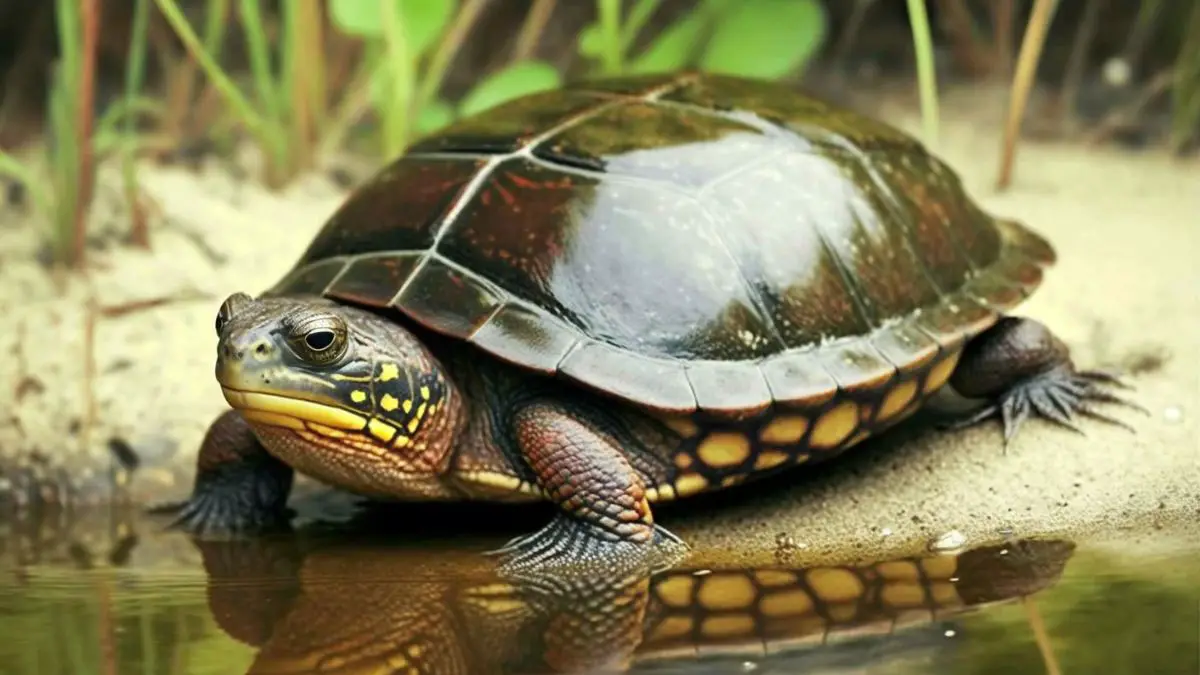Do Mud Turtles Bite? Are They Aggressive or Friendly?
Although mud turtles live in the wild, some of its distinct species are kept as pets, like Eastern Mud Turtles, Mississippi Mud Turtles, Yellow Mud Turtles, etc. While all these little turtles look adorable, they can be grouchy and even bite with their beaks when provoked.
Do mud turtles bite, and are they aggressive? Yes, all species of mud turtles could get aggressive and even bite when they become nervous and fear harm. So it’s not recommended to pick them up or touch them unless it’s too important! They use their defense mechanism to scare off any predator; some secret a foul-smelling liquid while others directly bite with their sharp beaks.
Does that mean you can’t touch your pet mud turtle? No, it’s not like that. You need to follow certain precautions before touching them. In this article, we’ll try to understand how mud turtles behave and how to handle them well.
Do Mud Turtles Bite?
Contents
Mud turtles are closely related to the musk turtle and belong to the same genus and taxonomic family, Kinosternidae. So like the musk turtle, they could also get aggressive in certain conditions, such as when they feel unsafe or live in an unsuitable environment.
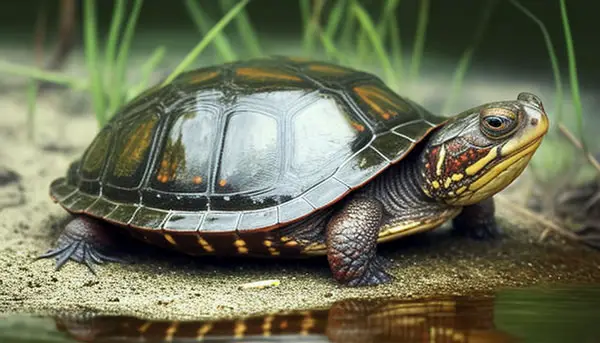
They’re generally shy creatures and don’t behave aggressively when brought up in captivity. But if someone doesn’t know how to approach them, they shouldn’t attempt to pick them up. It could frighten these turtles and tempt them to attack with a bite.
The mud turtles don’t have teeth, but they do have sharp, hooked beaks. Like all other turtles, they use their beaks and powerful jaw muscles to crush their prey’s shells. They can use the same biting force when feeling nervous and threatened by some harm. Some mud turtles also release a foul-smelling liquid from their anal glands as a defense mechanism. If you can smell it, you should know your pet isn’t in a good mood!
Some mud turtles have a more aggressive nature than others and also bite worse. The scorpion mud turtle could bite with a bite force of about 38N! The Eastern Mud Turtle, the most common mud turtle species considered for housing, also has an average bite force of 35N. Although their bite isn’t as powerful as it’s of the snapping turtles, it could still feel like a sharp pinch and can be painful.
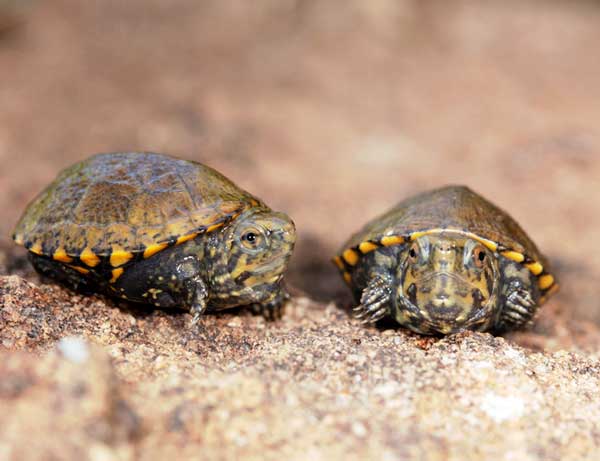
Reasons Why Mud Turtles Might Bite You
A few reasons why mud turtles can bite the person handling them are:
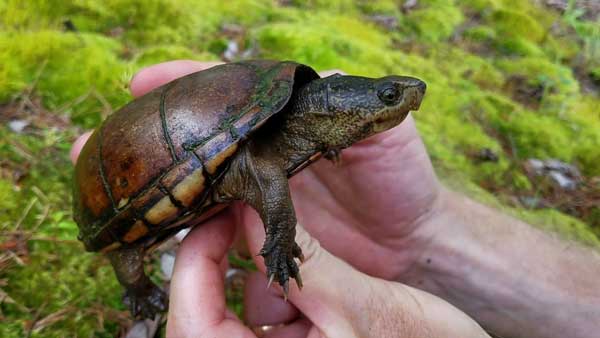
To Protect Themselves
The major reason why a mud turtle will bite is to protect themselves. If you pick these cuties up, they might feel scared and provoked, making them attack you with their sharp, curved beaks.
Unfavorable Living Conditions
The mud turtles can become aggressive due to inadequate room for diving and swimming. It happens if they’re kept indoors in some kind of aquarium. The cramped habituation can lead to competition over food or basking space, making them aggressive. If you’re planning to house one or two mud turtles, you must have a minimum tank size of 40-gallon. Similarly for indoor housing, you’ve to get a larger aquarium to house them.
Mistaking Serving Fingers as Food
If you hand feed your mud turtle, it may mistakenly think of your finger as food and try to bite them. Picking these turtles up and taking the fingers close to their mouth can get you bitten out of confusion.
Can Mud Turtle Bite Off Your Finger or Toe?
No. The mud turtle may bruise your finger or toe thinking it might be food but won’t bite off. However, an alligator snapping turtle can bite off your finger and other body parts when threatened.
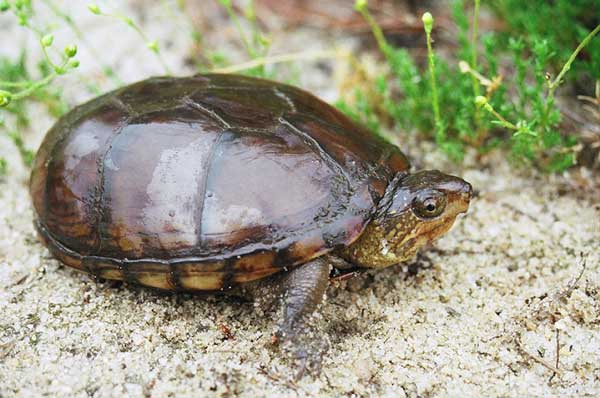
What Happens When Mud Turtle Bites?
The mud turtle can cause painful bites, but it doesn’t cause serious damage unless the victim is a kid with small fingers. The painful nip generally fades away within some time. However, the worrying thing about turtle bites is that they carry Salmonella bacteria and can infect a person when the bite breaks through the skin.
The victim could come up with symptoms like fever, stomach cramps, diarrhea, and require medical attention. But if the bite doesn’t break the skin, disinfecting the area should be enough to eliminate the risk of getting infected.
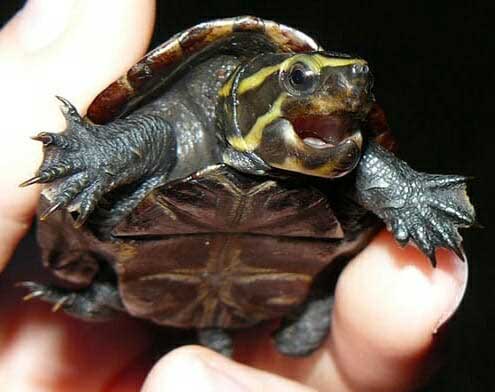
What To Do If Mud Turtle Bite You?
A mud turtle should initially bite you with a warning snap. But it soon releases its bite if you calm it down and don’t aggravate it.
If the mud turtle bites and breaks through the skin, there’s a good chance of you getting infected with Salmonella bacteria. You must wash the bitten area thoroughly with running water for quite some time and disinfect it properly.
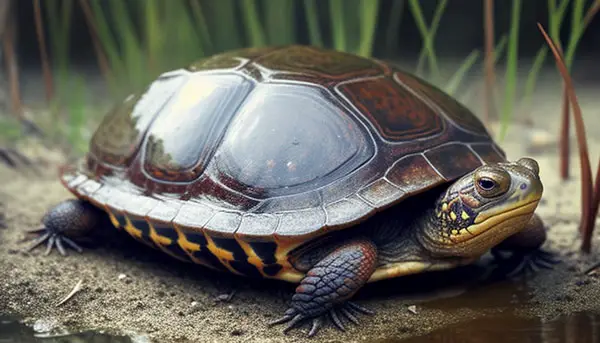
You may also have to go to the doctor, and oral antibiotics could be given along with other pain meds. If the bite isn’t serious, the doctor might apply a topical antibiotic (ointment) and cover the wounded area with a sterile bandage.
Most of the time, the turtle bites don’t break through the skin. In that case, you can only wash the area with tepid water, sanitizer, or mild soap.
Tips To Avoid Getting Bitten by a Mud Turtle
You can follow the tips below to avoid getting bitten by your pet mud turtle.
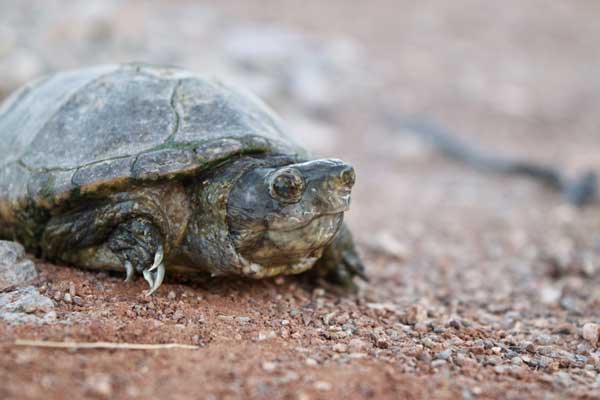
Provide Good Living
Ensure they have adequate space to dive, swim, and bask. If the living condition is good, you should see them calm and not attack each other. Also, don’t suddenly change their dwelling as it can make them stressed and more likely to bite.
Approach Correctly
Typically a turtle examines objects using its nose. So if you want to touch a mud turtle, approach them from behind and press down on its back end. It’ll make the turtle retreat into the shell and enable you to handle it safely.
Stay Calm While It Attempts to Bite
Pet mud turtles don’t bite unless it’s frightened by some rough handling. If you see it trying to bite you, don’t pull its mouth off you. It can scare the turtle and tempt for strong bites. Simply place it into the water, hold it still, and allow it to let go.
FAQs
Let’s get some FAQs on mud turtles answered here.
No, they don’t have any teeth. All kinds of turtles are born without teeth. But they have a sharp beak, like the birds, which they use along with their strong jaws to chew, bite, and tear the meals before swallowing. These sharp beaks continue to grow throughout their life.
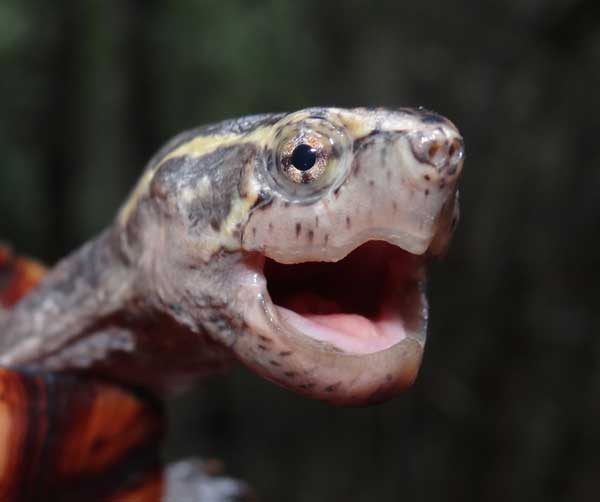
Since they’re originally wild turtles, mud turtles are quite hardy. And that makes them excellent pet turtles as well. The small size is a big advantage that makes them easier to house and helps them adapt to the conditions well. They can live up to 50 to 60 years with adequate care.
Since mud turtles wander away from water often in the summer, they can be considered semi-aquatic turtles. However, most of the year, they like to be in slow-moving bodies of water amidst abundant leafy vegetables.
Outro
Mud turtles, like all other turtles, can bite and get aggressive when touched. So if you’re keeping any of its species as pets or planning to do it, make sure to understand their behavior unless you want to end up getting bitten. Don’t approach them in a way that can scare them.
Moreover, restrain from touching or picking them up unnecessarily. Their aggression could also be due to improper living conditions, so ensure a suitable habitation for them. Follow the tips above to avoid getting bitten. But if you get bitten anyway, don’t panic, simply do what you’re told to do in the article.
If you are wondering if box turtles and red-eared slider turtles bite? check out our articles on it.
